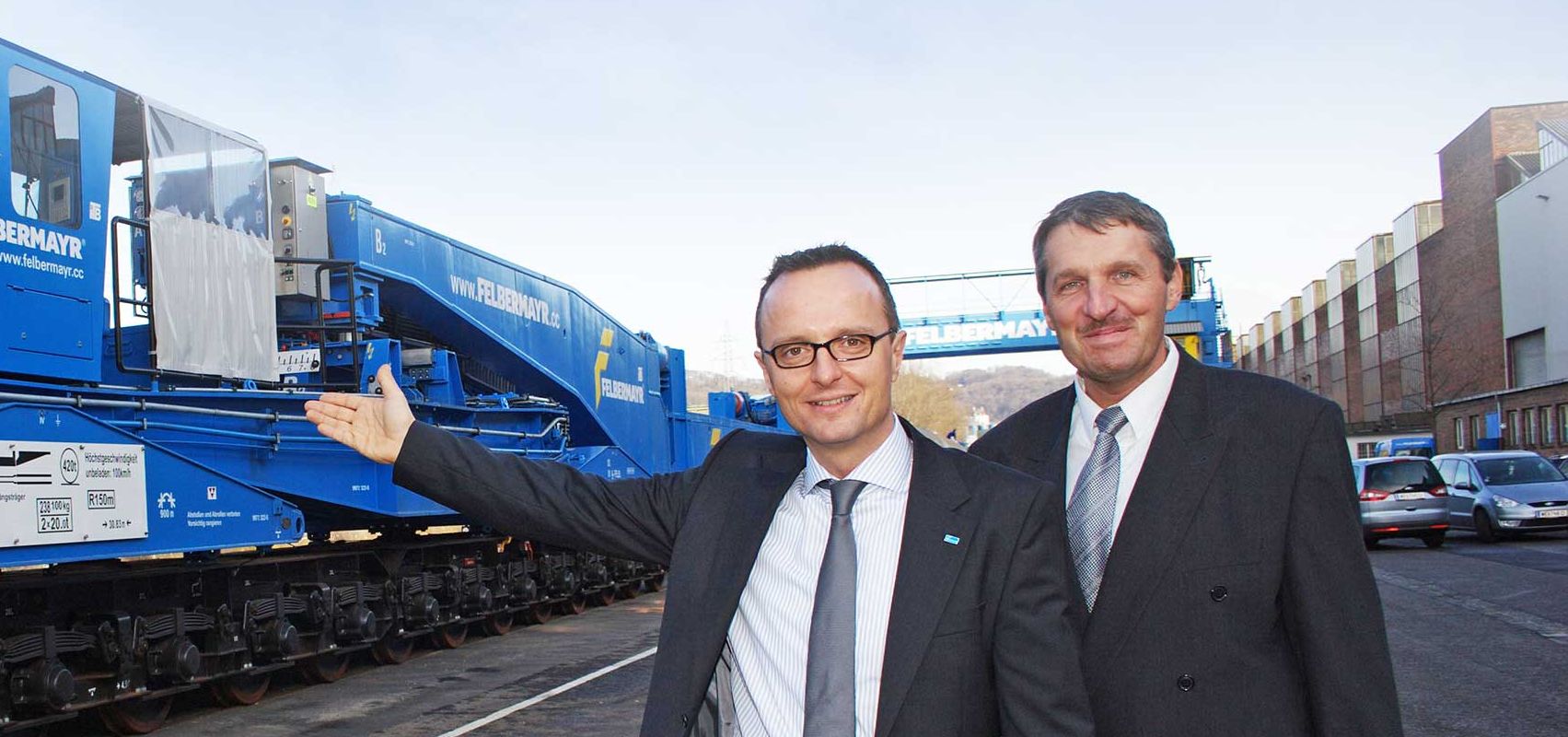A quarter century of rail
July 16, 2019 | Markus Lackner
The history behind the special wagons for transporting heavy goods on rail goes a long way back in Austria. As early as the 1950s, the forwarder Intercont started up with the corresponding wagons, initially with four to ten axles. But already by the 60s, a 20-axle Schnabel car was put into service – in those days the largest railway wagon in the world. At that time the transport was carried out primarily for the state-owned industry of the day. At the end of the 80s, the Austrian allied companies group ordered a 32-axle Schnabel car, which was operated by the forwarder Intercont.
Felbermayr founds ITB
1994, on the 1st of July to be precise, the Intercont fleet was taken over by Felbermayr. At that time still under the management of Herbert Reutterer, who held this role until 2005. At this time, the post-communist countries of the Czech Republic, Slovakia and Poland were purchasing rolling stock, which also provided the market opening into these countries. In 2005, Thomas Grabuschnigg took over the management of ITB, under the umbrella of Wolfgang Schellerer, initially as departmental Manager and from 1st January 2007 as divisional manager, whilst Wolfgang Schellerer was appointed as managing director at the same point in time.
After that there was a change in strategy: No more used and in some cases outdated equipment was to be bought, but rather only equipment that represented the latest technological state of the art. This approach led in the meantime to the new building of five Schnabel cars under our own direction. Equally, the transport industry should now be offered more complete solutions, also incorporating other transport modes. This paradigm shift followed a four-year growth spurt, which is still being maintained today, despite the changing market conditions. In addition to the head office in Lanzendorf near Vienna, ITB currently maintains sites in Wroclaw (PL) as well as Zagreb (HR) and Prague (CZ). The home station is in Linz (A). The success of ITB is primarily based on solid and enduring customer relations, close partnerships with the various railway operators, equipment that represents the benchmark for all others, highly motivated and qualified personnel and finally appropriate leadership against the backdrop of the family owners, who can be counted on at all times.
Chronology of a success story
1994 – Founding of ITB
2005 – Schellerer and Grabuschnigg restructure ITB
2006 – Go-ahead for the new construction of a 20-axle unit; three 32-axle units and a further 20-axle unit to follow
2007 – Schellerer becomes managing director, Grabuschnigg becomes divisional manager of ITB; the general management is divided in Poland and the Czech Republic
2014 – Founding of F & F Rail in Zagreb to serve the local market

